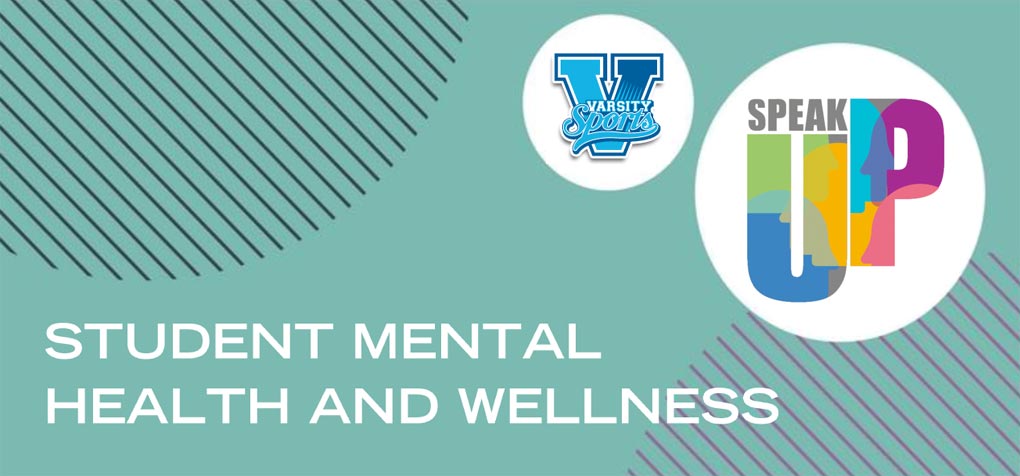Varsity Sports – SpeakUP 2018 Messaging

At Varsity Sports we take mental health seriously. Athletes need to be in the ‘right’ headspace on and off the field in order to achieve their best. Physical fitness is not enough to perform on the sports field, mental fitness and preparedness is important too.
In 2018 Varsity Sports, together with the Ithemba Foundation will take the lead in the discussion around mental health in South Africa and play a proactive role in raising awareness about mental health. SpeakUP encourages everyone to speak up about Mental Health. The message is clear; we are here to inform the public about mental health and we’re encouraging our athletes to get involved in spreading the message.
Overall campaign objective:
The overall objective of the campaign is that mental health should be normalised and humanised, and more specifically that sports people will handle mental health issues the way they handle physical injuries.
Key objectives are:
- Educate Varsity Sports core audience (athletes) about the importance of mental health.
- Raise awareness of the importance to speak about mental health.
- Inform broader student audience of where they can find assistance to deal with mental health issues.
Read more here Read Our Brochure
The Mental Health Information Centre of SA supports the Varsity Sports SpeakUP initiative
Young adulthood is a time of increased risk for developing a range of serious behavioural and mental health problems. Many university students experience difficulties with psychological problems, including psychotic illnesses, depression, anxiety disorders and substance use problems. Left untreated, these disorders can have a negative impact on development, motivation and attainment, leading to university drop out and academic failure. Research suggests that three-quarters of all mental disorders begin by the time people are 24 years old.
In South Africa (SA) as many as 12% of university students suffer from symptoms of depression and 15% report clinically significant symptoms of anxiety. Studies indicate that approximately 50% of SA university students abuse substances, most commonly alcohol.
A recent survey of US university students conducted by the American College Health Association revealed that 44% of students reported having felt “so depressed it was difficult to function” at some point in the past 12 months.
Mental health problems have a serious impact on academic attainment and lead to problems such as academic failure and university attrition. Some reports suggest that as many as half of students who enrol at SA universities never finish their degrees. The reasons for this high dropout rate are poorly understood which makes it difficult for universities to plan effective interventions. There is, however, little doubt that untreated and poorly managed psychological problems contribute to high dropout rates.
Very few students with mental health problems receive minimally adequate mental health treatment. In countries like SA less than 10% of university students with mental health care problems receive psychological treatment.
There is a marked lack of reliable local data about the risk factors for psychological problems, the trajectory of mental illness among university students and effective interventions to promote psychological health on SA university campuses.
Researchers from Stellenbosch University (SU) and UCT are busy with a WHO World Mental Health Surveys International College Student project (WMH-ICS), an international multi-site longitudinal research project to gather data about the risk factors for mental illness and identify possible interventions to promote the wellbeing of university students.




